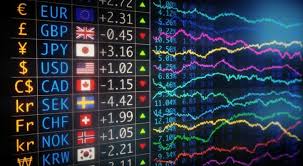
Forex trading is an intricate field that requires both knowledge and practice to master. To become a successful forex trader, one must not only understand the market’s mechanics but also develop a strategy that fits their personal style and risk tolerance. A key part of this development is practicing trading, where one can hone their skills without the stress of real money at stake. You can start your trading journey and improve your skills with resources like forex trading practice Qatar Brokers, which offer a range of tools and services to assist traders of all levels.
Understanding Forex Trading
The foreign exchange market, or forex, is the world’s largest financial market, with a daily trading volume exceeding $6 trillion. Unlike stock trading, which takes place on centralized exchanges, forex trading occurs over the counter (OTC), meaning transactions are executed directly between parties, usually through an online platform. The trading involves currencies and their relative values against one another, and it can be affected by various factors including economic indicators, geopolitical events, and market sentiment.
The Importance of Practice
Just like any other skill, trading requires practice. Forex trading practice is essential for both novice and experienced traders. For beginners, it’s a way to understand how trading works without risking real money. For seasoned traders, it offers a platform to test new strategies, refine existing ones, and respond to changing market conditions without suffering financial losses.
Utilizing Demo Accounts
One of the best ways to practice forex trading is by using a demo account offered by most brokers. These accounts allow you to trade with virtual money, simulating the live trading environment. You can try out various strategies, learn how to read charts, and get comfortable with the trading platform. It’s recommended to use a demo account for several months until you feel confident enough to transition to a live account.
Learning Trading Strategies
While practicing on a demo account, traders can explore various trading strategies. Here are a few of the most popular strategies:
- Scalping: This strategy involves making numerous trades throughout a day to profit from small price changes. Scalpers typically hold positions for a few seconds to minutes.
- Day Trading: Day traders open and close trades within the same day. They aim to capitalize on intraday price movements and avoid overnight risk.
- Swing Trading: Swing traders hold positions for several days to weeks. They look to profit from price swings in the market, often using technical analysis to make decisions.
- Position Trading: This is a long-term strategy where traders hold positions for months or even years, based on fundamental analysis.

The Role of Risk Management
Effective risk management is crucial in forex trading. Without it, even the best trading strategies can lead to significant losses. Key components of risk management include:
- Setting Stop-Loss Orders: A stop-loss order is designed to limit an investor’s loss on a position. When a trade reaches a certain predefined level, the position is closed automatically.
- Position Sizing: This refers to determining the amount of capital to risk on each trade. A common rule is to risk only 1-2% of your trading capital on a single trade.
- Diversification: Exposure to a variety of currency pairs can help mitigate risk. Traders should not put all their capital into one position.
Psychological Preparedness
Forex trading can be emotionally taxing. Practice not only helps you become familiar with market mechanics but also trains your mindset. It’s essential to develop emotional discipline to prevent impulsive trading decisions driven by fear or greed. Here are a few psychological tips:
- Stay Objective: Treat trading as a business. Base decisions on data and analysis rather than emotions.
- Avoid Overtrading: It’s easy to get caught up in the thrill of trading, but overtrading can lead to mistakes and significant losses.
- Learn from Mistakes: Analyze losing trades to understand what went wrong. This is an essential part of the learning process.
Continuously Educate Yourself
The forex market is constantly evolving. Therefore, it’s essential to keep learning. Many online resources, courses, and books can enhance your understanding of forex trading. Participate in webinars, follow market news, and consider joining trading communities. Engaging with other traders can provide insights and different perspectives on market trends and strategies.
Conclusion
Practicing forex trading is an indispensable element of becoming a successful trader. Utilizing demo accounts, mastering various trading strategies, implementing risk management, and developing psychological discipline are crucial steps in this journey. As you gain experience and knowledge, remember that trading is not just about making money but also about preserving capital and becoming a better trader over time. With dedicated practice and the right resources, you can improve your trading skills and increase your chances of success in the forex market.


